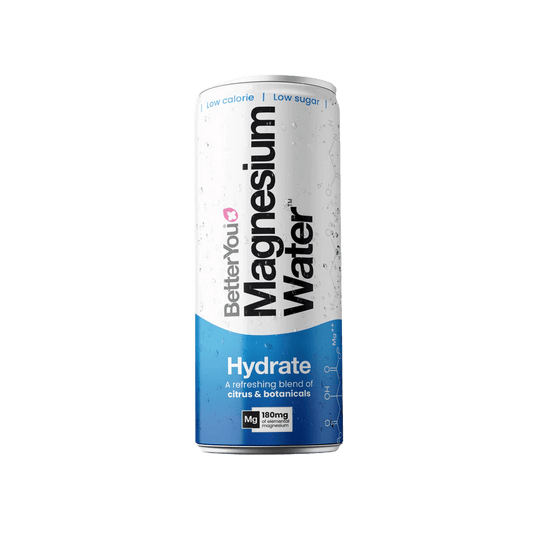Introduction: The Daily Pill Dilemma
Multivitamins are one of the most popular supplements in the UK. Millions of people rely on them daily, whether to cover dietary gaps, support energy, or give peace of mind that they’re getting enough nutrients. But life happens — sometimes you forget your morning pill, or you leave your supplement stash at home while travelling.
So what actually happens if you go a few days without them? Will your energy crash, your immune system weaken, or your progress in the gym stall? Or is it no big deal?
In this guide, we’ll unpack what skipping multivitamins for a week really does to your body, when it matters most, and how to get back on track.
1) Is It Okay to Take a Break From Multivitamins?
The short answer: usually yes. Multivitamins aren’t drugs that work instantly and wear off after a few hours. They’re more like nutritional insurance, topping up your body with the vitamins and minerals you might not always get from food.
That means missing a few days won’t send you into deficiency immediately. Many nutrients, such as vitamin D, A, and B12, are stored in the body and released gradually. Others, like vitamin C, are water-soluble and flush out quickly — so if your diet isn’t providing enough, you may feel the effects sooner.
💡 If you’re consistently eating a balanced diet rich in fruit, vegetables, protein, and healthy fats, taking a break isn’t usually a big deal. But for those who rely heavily on supplements to cover gaps, skipping for a week can matter more.

2) What Happens If You Skip a Multivitamin?
If you skip your multivitamin for a single day, you’ll almost certainly notice nothing. But after a week, you may begin to feel subtle changes depending on your lifestyle, diet, and stress levels.
Possible effects:
-
Reduced energy → fatigue may creep in if your diet doesn’t provide enough iron, B vitamins, or magnesium.
-
Lowered immunity → if you were borderline deficient in vitamin C, D, or zinc, a missed week can increase your vulnerability.
-
Mood shifts → low B vitamins or magnesium may make you feel more stressed or irritable.
-
Slower recovery → nutrients like vitamin C, zinc, and protein are essential for tissue repair.
It’s less about “withdrawal” and more about whether your body was already operating close to empty. Think of multivitamins as topping up the tank. Skip too long, and you risk running low.
3) Can Multivitamins Cause a Rash?
Interestingly, some people notice skin reactions when starting or stopping multivitamins. This is usually down to specific ingredients rather than the concept of a multivitamin itself.
-
Niacin (B3) → high doses can cause flushing or redness.
-
Vitamin B6 → excessive amounts may lead to tingling or skin irritation over time.
-
Synthetic additives → some cheaper multis contain fillers, binders, or colourings that don’t sit well with sensitive skin.
If you stop a multivitamin and a rash clears up, it’s worth checking the label for unnecessary extras. Higher-quality complexes, like Applied Nutrition Multi-Vitamin Complex, keep things clean and effective without overloading on one nutrient.

4) Can I Take Multivitamins With Omeprazole?
This is a common question for anyone on acid reflux medication. Omeprazole reduces stomach acid, which can interfere with the absorption of certain nutrients like magnesium, calcium, and vitamin B12.
If you’re taking omeprazole, skipping your multivitamin for a week may matter more — because your absorption from food is already reduced. In this case, a multivitamin isn’t just “nice to have” — it’s a protective measure against deficiencies.
💡 Pairing a multi with BetterYou Magnesium Water or Supplement Needs Omega 3 can be extra useful, since both nutrients can be harder to get enough of when digestion is compromised.
5) Do Multivitamins Make You Tired?
It might sound counterintuitive, but some people report feeling more tired when they take a multivitamin. This usually happens for one of three reasons:
-
Imbalance → an excess of certain nutrients, like iron, can actually cause fatigue.
-
Timing → taking your multi late at night may interfere with sleep due to energising B vitamins.
-
Detox effect → sometimes, when your body gets a sudden influx of nutrients, it “clears out” old toxins, leaving you feeling temporarily sluggish.
Skipping your multi for a week might actually relieve fatigue if you were taking an unbalanced formula. But with a well-designed option like Applied Nutrition Multi-Vitamin Complex, tiredness is more likely caused by lifestyle factors (lack of sleep, stress, poor diet) than the vitamins themselves.

✅ What We’ve Covered in Part 1
So far, we’ve explored:
-
Whether it’s safe to take a break from multivitamins.
-
The effects of skipping them for a week.
-
Possible skin reactions.
-
The interaction with omeprazole.
-
Why some people feel tired after taking them.
Products highlighted from the Uncle Gym range:
- Applied Nutrition Multi-Vitamin Complex
- Supplement Needs Omega 3
- BetterYou Magnesium Water
- Per4m Advanced Whey Protein
- Supplement Needs Ashwagandha
🔜 Part 2 will dig deeper into:
-
The side effects of stopping multivitamins.
-
Whether you really need them daily.
-
Mental health effects (anxiety, depression).
-
Safety for kidneys.
-
How long they take to start working.
What Happens If You Skip Multivitamins for a Week? (Part 2)
6) What Are the Side Effects of Stopping Multivitamins?
Unlike prescription medication, there are no “withdrawal” symptoms when you stop taking a multivitamin. But the side effects often come indirectly — through nutrient gaps that open up over time.
Potential issues if you stop altogether:
-
Lower energy → B vitamins and iron are central to energy metabolism. Without them, fatigue builds.
-
Weakened immunity → skipping vitamin C, zinc, or vitamin D long-term can make you more prone to colds.
-
Bone weakness → missing calcium, magnesium, and vitamin D support can affect density over time.
-
Mood changes → low magnesium and B vitamins may contribute to anxiety or low mood.
Missing a week is unlikely to trigger these side effects, but stopping for months may gradually erode your baseline health.
7) Is It Really Necessary to Take a Multivitamin Every Day?
This is where opinions split. Some argue multivitamins are “just expensive urine,” since excess nutrients get flushed out. But research shows a daily multi does fill common dietary gaps.
Consider this:
-
In the UK, 74% of adults don’t get enough vitamin D from diet alone.
-
Many people fall short on magnesium, vitamin C, and omega-3.
-
Busy lifestyles mean fruit, veg, and balanced meals are often sacrificed.
Taking a multivitamin daily ensures consistency. Skipping for a week won’t undo months of good habits, but if your diet is patchy, the daily dose becomes more important.

8) Can Multivitamins Cause Anxiety or Depression?
It’s rare, but an imbalance of nutrients can influence mental health. For example:
-
Excess iron may cause irritability or restlessness.
-
Too much B6 has been linked to nerve issues in rare cases.
-
Caffeine-containing multis (yes, they exist) can trigger jitteriness.
But in general, multivitamins are more likely to reduce anxiety and fatigue by topping up magnesium, B vitamins, and vitamin D.
💡 Combining a multivitamin with Supplement Needs Ashwagandha creates a balance: one covers nutrients, the other supports the stress response directly.
9) Are Multivitamins Safe for Kidneys?
For most healthy people, yes. The body flushes out excess water-soluble vitamins like C and B. However, those with chronic kidney issues need to be cautious — fat-soluble vitamins (A, D, E, K) can build up.
If your kidneys are healthy, a daily multi is safe, especially when taken with water. BetterYou Magnesium Water is a clever way to hydrate while adding extra mineral support, helping kidneys process nutrients effectively.
10) How Long Does It Take for Multivitamins to Start Working?
This depends on the nutrient.
-
Vitamin C → hours to days (immune support).
-
B vitamins → days to weeks (energy boost).
-
Vitamin D → weeks to months (bone, immunity).
-
Omega-3 → several weeks (inflammation control).
If you skip for a week, your body won’t forget everything. Stored nutrients like vitamin D and B12 keep working. But for nutrients like vitamin C, effects drop more quickly.
💡 To feel the benefits faster, pair your multivitamin with Per4m Advanced Whey Protein for protein-driven recovery and Supplement Needs Omega 3 for inflammation balance.

🧠 FAQ: Skipping Multivitamins
1. Is it bad to skip multivitamins sometimes?
No — a missed day or even a week won’t cause instant harm. Consistency matters most over months and years.
2. How many days can you go without vitamins?
Most people can go weeks before deficiencies appear, but vitamin C drops faster than fat-soluble vitamins like D or A.
3. Will missing a multivitamin affect health immediately?
Not usually. Effects tend to build gradually, not overnight.
4. Do you lose benefits if you stop taking multivitamins?
Yes, over time. Once nutrient levels decline, you lose the ongoing protection they provide.
5. Should everyone take a multivitamin?
Not necessarily. If your diet is diverse and balanced, you may not need one. But most people benefit from a reliable daily safety net.
Conclusion: Does Missing a Week Matter?
If you miss your multivitamin for a week, don’t panic. For most people, it won’t cause noticeable changes. But for those with high stress, restrictive diets, or digestive issues, consistency matters.
The smartest approach is simple:
-
Aim to take your multivitamin daily.
-
Don’t stress about a missed dose.
-
Pair it with other essentials like Supplement Needs Omega 3, BetterYou Magnesium Water, and Applied Nutrition Collagen Peptides to cover all bases.
Supplements don’t work like switches that turn off the moment you forget. They build a foundation over time — and your health is about habits, not perfection.





